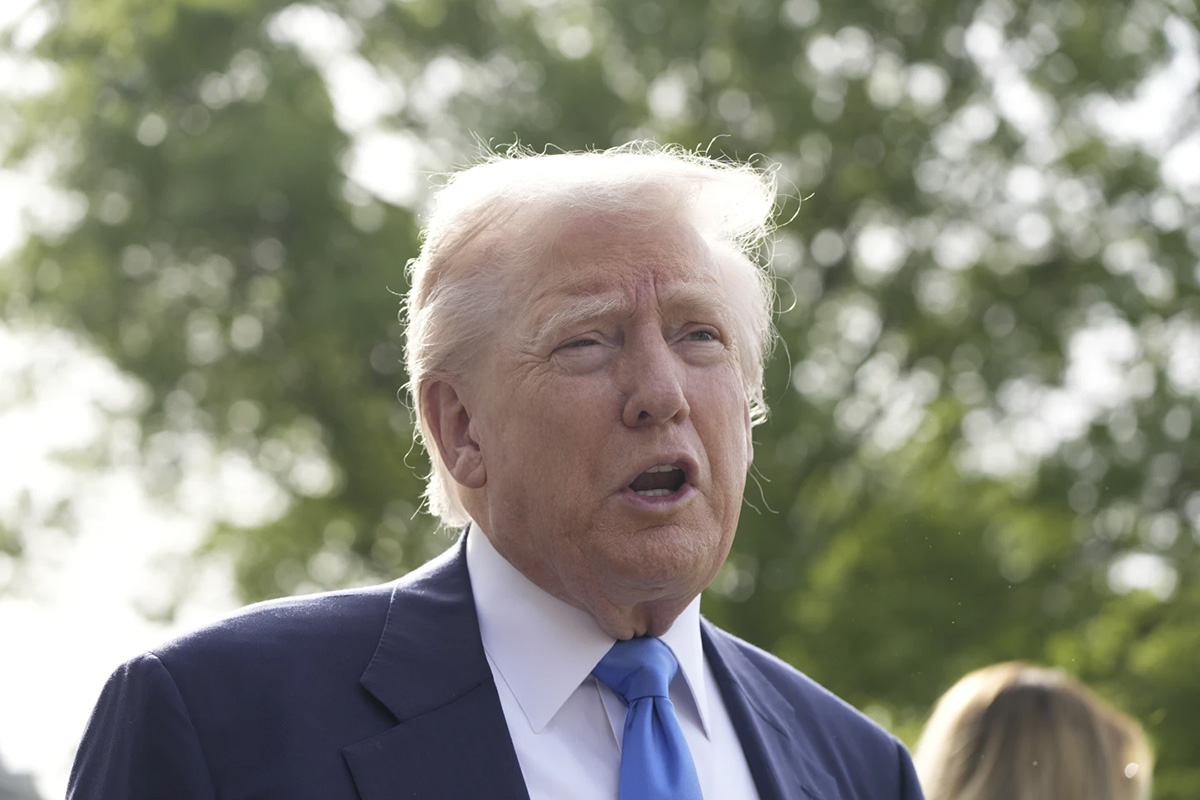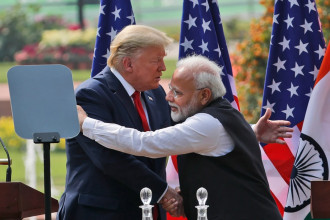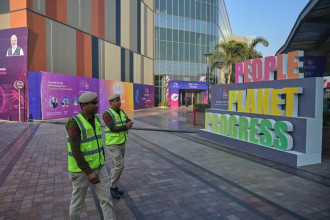
NEW YORK: President Donald Trump has launched a new salvo in his tariff war, targeting films made outside the United States.
In a post on Sunday night on his Truth Social platform, Trump said he had authorised the Department of Commerce and the Office of the US Trade Representative to impose a 100% tariff “on any and all movies coming into our country that are produced in foreign lands.”
“The movie industry in America is DYING a very fast death,” he wrote, complaining that other countries “are offering all sorts of incentives to draw” filmmakers and studios away from the US. “This is a concerted effort by other nations and, therefore, a national security threat. It is, in addition to everything else, messaging and propaganda!”
It was not immediately clear how such a tariff on international productions could be implemented. It is common for both large and smaller films to include production in both the US and other countries. Big-budget movies like the upcoming “Mission: Impossible – The Final Reckoning,” for instance, are filmed across multiple locations worldwide.
Incentive programmes have for years influenced where movies are filmed, increasingly driving production out of California and into other states and countries with favourable tax incentives, such as Canada and the United Kingdom.
Yet tariffs are typically intended to encourage consumers to choose American-made products. In cinemas, American-produced films already overwhelmingly dominate the domestic market.
China has ramped up its domestic film production, with the animated blockbuster “Ne Zha 2” grossing more than $2 billion this year. However, the vast majority of its sales came from mainland China, with North American earnings reaching just $20.9 million.
The Motion Picture Association did not immediately respond to messages on Sunday evening.
Data from the MPA illustrates Hollywood’s global dominance. According to the association, American films generated $22.6 billion in exports and a $15.3 billion trade surplus in 2023.
Trump has upheld his “tariff man” reputation, imposing new taxes on goods from various countries. This includes a 145% tariff on Chinese goods and a 10% baseline tariff on products from other nations, with the possibility of even higher levies.
By unilaterally enforcing tariffs, Trump has exerted significant influence over international trade, creating political risks and shifting market dynamics. Tariffs have already been imposed on automobiles, steel and aluminium, while new import duties on pharmaceutical drugs and other goods are expected in the coming weeks.
Trump has long voiced concerns over film production moving overseas.
Shortly before taking office, he announced that he had appointed actors Mel Gibson, Jon Voight and Sylvester Stallone as “special ambassadors” to Hollywood, aiming to bring it “BACK—BIGGER, BETTER, AND STRONGER THAN EVER BEFORE!”
US film and television production has faced multiple challenges in recent years, including disruptions caused by the COVID-19 pandemic, the Hollywood guild strikes of 2023 and wildfires in the Los Angeles area. Overall production in the US fell by 26% last year compared with 2021, according to data from ProdPro, which tracks industry trends.
The group’s annual survey of executives, which assesses preferred filming locations, found that no US city ranked among the top five, according to the Hollywood Reporter. Toronto, the UK, Vancouver, Central Europe and Australia led the rankings, while California placed sixth, Georgia seventh, New Jersey eighth and New York ninth.
The decline in production has been particularly severe in California. In the greater Los Angeles area, production dropped by 5.6% last year compared with 2023, according to FilmLA—second only to 2020, during the height of the pandemic. In October, Governor Gavin Newsom proposed increasing California’s Film & Television Tax Credit programme to $750 million annually, up from $330 million.
Other US cities, including Atlanta, New York, Chicago and San Francisco, have introduced aggressive tax incentives to attract film and television productions. These initiatives include cash grants, as seen in Texas, and tax credits, offered in Georgia and New Mexico.
“Other nations have been stealing the movie-making capabilities from the United States,” Trump told reporters at the White House on Sunday night after returning from a weekend in Florida. “If they’re not willing to make a movie inside the United States, we should have a tariff on movies that come in.”
By RSS/AP






-1770974468.jpg)